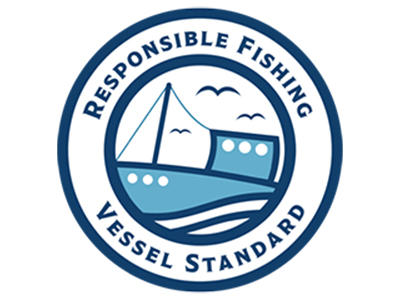
Pacifical partners call for the Responsible Fishing Vessel Standard (RFVS) to be adopted in their MSC tuna supply chain. Retailers and brand owners, sourcing MSC tuna from the Pacific, are aware that labor conditions in wild capture fisheries, such as tuna, are difficult to observe and monitor, due to the remote nature of their workplace. The RFVS certification can play an important role in providing assurances for crew members and their families, but also to End of Chain tuna buyers.
The potential for workers in the fishing industry to be exposed to exploitation, due to the challenging environment of working at sea, is a reality. In some instances, there could be inadequate living facilities onboard the vessels, physically dangerous working conditions, lack of safety equipment, excessive working hours and low wages.
The RFVS specifically focuses on ensuring the crew’s rights, their welfare and safety on board and provides comprehensive assurances of vessel best management practices from catch to shore. The standard was developed to be in alignment with International Labor Organization (ILO) C188, the fundamental ILO labor conventions, as well as the United Nations Food and Agriculture Organization (FAO) and the UN International Marine Organization (IMO).
The RFVS is offered by the Global Seafood Alliance (GSA). The RFVS is not an industry based social accountability standard, but rather a one designed through a global multi stakeholder engagement process. Developed in line with ISO 17065 requirements to ensure that impartial, robust, and credible certification decisions are made by independent certification bodies. It is also the first vessel standard program to apply for the new SCCI At-Sea Operations Benchmark.
Pacifical partners, including Simplot Australia, producers of John West Tuna products, are backing the move to have vessels adopt the Responsible Fishing Vessel Standard (RFVS) in the Western Pacific region. Simplot sources 100% Marine Stewardship Council certified skipjack tuna, from the waters of the PNA Pacifical Island nations. Graham Dugdale, Managing Director Simplot Australia, said, “Ensuring that our John West tuna products are responsibly sourced is of paramount importance to our business. This extends beyond the way fish are caught, it runs through the entire supply chain and includes protecting the human rights of the people working on fishing vessels.”
“Knowing that fair working and living conditions are undertaken on board these vessels is vital and integral to our business values. We are committed to increasing our visibility of human rights, enhancing practices and remediating any issues that we may find.”
The PNA nation’s observers bring an extra dimension to social accountability on board. They are their eyes and ears on board of purse seiner vessels. Daily, they monitor and report on everything that happens on the boat, including living and working conditions. These observations will assist in continuously monitoring compliance with the RFVS program.
“Without these crews and observers hard work we would not have any sustainable tuna. So ensuring their daily well-being is fundamental to us all. The RFVS governance is a further evolution of the already robust practices that we have in place across our Pacifical supply chain. With our fishing partners we will work closely together to further improve on-board practices and conditions” says Henk Brus, Chief Executive Officer at Pacifical.
Working under one social standard within PNA waters brings several benefits for Pacifical’s fishing partners. The social accountability criteria will be clear for all crew, captains and fishing masters, the management staff and human resources department. Social accountability claims will be independently verified onboard, on a trip-to-trip basis. Default and simplified independent verification processes will replace the self-assessment protocols currently in place.